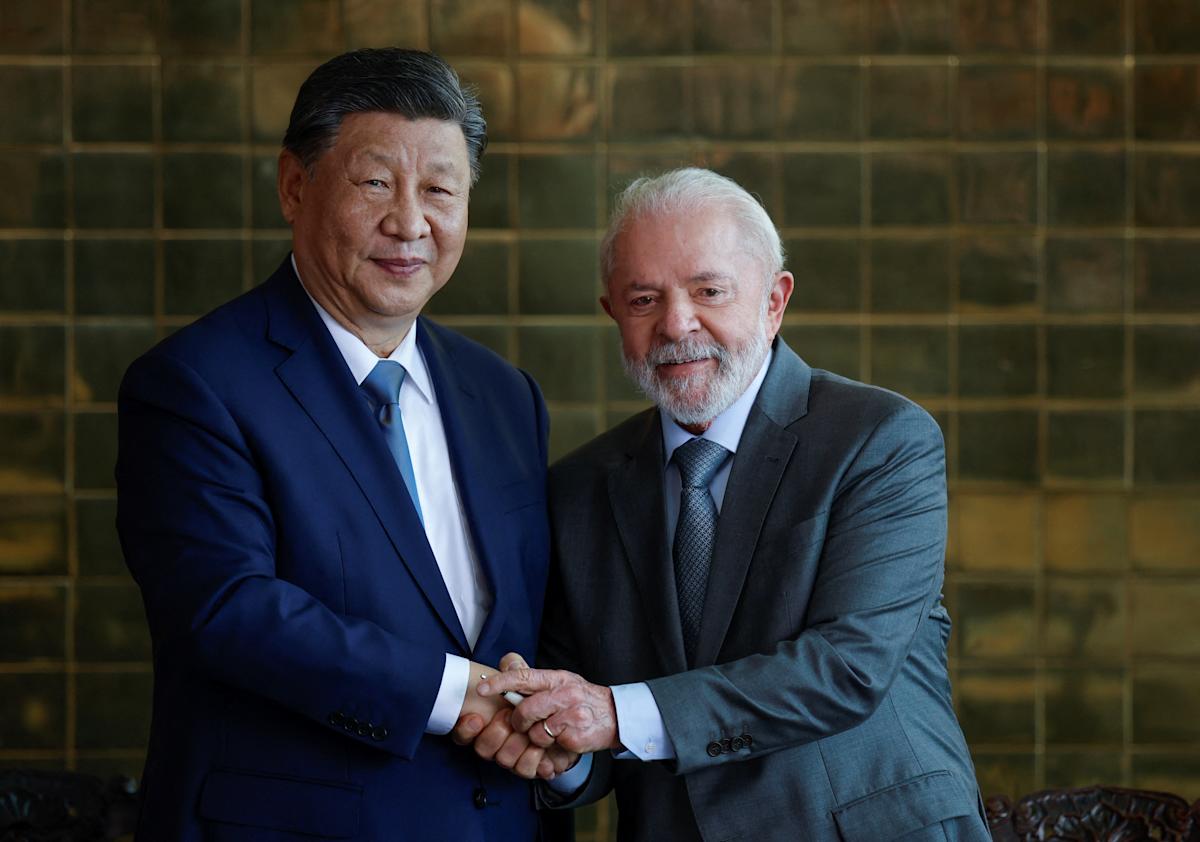Brazil Strengthens Ties with China Amidst U.S. Tariff Controversy
- Small Town Truth

- Jul 23
- 2 min read

The relationship between Brazil and China is poised for significant strengthening, especially in light of recent developments in international trade dynamics. As President Luiz Inacio Lula da Silva reaffirmed the ties during a visit to China, the implications of U.S. trade policies are increasingly prompting Brazil to solidify its partnership with the Asian powerhouse.
U.S. Tariff Announcement Shakes Brazilian Markets
President Donald Trump's recent announcement of a 50% tariff on Brazilian imports has sent ripples through Brazil's economic landscape. The announcement, said to be driven by "overtly political reasons," marks a stark increase from a previously planned 10% tariff set to take effect during Trump's "Liberation Day." This sudden shift has left many Brazilian sectors—particularly the aviation, automobile parts, coffee, and citrus industries—in a state of concern given their significant exports to the U.S.
Changing Trade Relationships
The timing of this tariff escalation is notable, coinciding with the BRICS summit held in Rio de Janeiro, where leaders expressed concerns over tariffs inconsistent with World Trade Organization regulations. Trump’s actions, which have drawn criticism for their political motivations, not only confuse trade relations but may also diminish the United States' reputation as a dependable trade partner, according to experts.
In a context that likely favors China, Brazilian trade professionals note that the current trajectory of U.S.-Brazil relations has shifted dramatically. Tulio Cariello, director at the Brazil-China Business Council, stated, “The reality is that, today, the relation between Brazil and China is much more positive and promising than the one with the United States.”
Brazil's Economic Pivot Toward China
Brazil's Ministry of Finance recently announced plans to create a tax advisory office in Beijing, a strategic move to bolster bilateral trade relations and facilitate fiscal cooperation. This move signals a broader trend toward increased integration with China, which became Brazil’s largest export market in 2009. The political leadership sees potential benefits in strengthened ties, as China has invested over $73 billion in Brazil since 2007, with notable investments in sectors like energy, agriculture, and infrastructure.
Chinese products, especially electric vehicles, are becoming increasingly prevalent in Brazil. For instance, BYD’s electric cars now dominate the market, with seven out of ten electric vehicles sold in the country coming from the manufacturer. Additionally, BYD's recent acquisition of a large factory in Bahia, previously owned by Ford, symbolizes the growing Chinese influence in Brazil.
Implications for Future Trade
Despite the fostered relationship, trade experts caution that Brazil's exports to China may differ significantly from those to the U.S. Livio Ribeiro from the Brazilian Institute of Economics noted, "Brazil isn’t going to export manufactured products to China. That doesn’t make much sense." Instead, the expectation is that Chinese investments will enhance Brazil's industrial capabilities and economic diversification.
During his visit to China, President Lula emphasized the mutual dependence between the nations, asserting, “China needs Brazil and Brazil needs China,” highlighting their partnership as vital to the respect of the Global South on an international level.
.png)